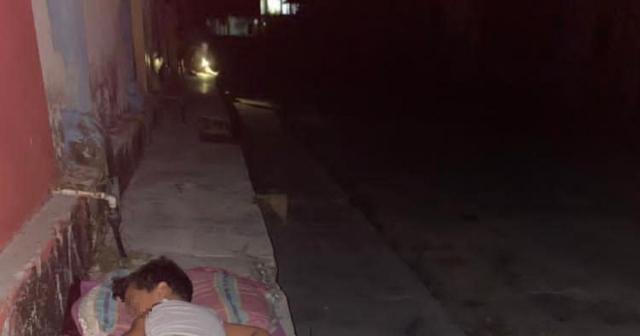Between the wave of blackouts that lives Cuba, the governor Miguel Diaz-Canel, acknowledged on May 11, in an interview given to the Spanish journalist Ignacio Ramonet, published this Wednesday in Granma, that the Island is "in an extremely complex situation regarding energy issues."
As he listed, under his management "electric generation fails due to lack of fuel, lack of maintenance or due to the coincidence of the two factors." In short, the blame for the blackouts is "the technological problems" and that "maintenance strategies" have been organized thinking "that there will be a lower level of effects in summer", but things have become complicated because "there has been the coincidence of several plants that had scheduled maintenance, planned and that are being developed, but simultaneously others have broken," he said.
"We have not been able to close the national electricity system for more than five days within twenty-four hours, which means that at all times we have had some level of blackout, and that, successively, undoubtedly damages and complicates the situation, "It causes discomfort, causes misunderstandings and hardens the lives of Cubans."said Raúl Castro's successor.
Among the reasons why the country has "an unstable electrical energy system" in which "strong blackouts" occurDíaz-Canel began by alluding to the fact that the Island's electrical energy system is composed, on the one hand, of thermoelectric plants, generating thermal energy, which run on national fuel. It is, he added, a heavy crude oil, which has sulfur and hence requires constant repairs.
"More than $300 million a year is needed to maintain this national electrical energy system and that availability has not existed. This means that it has breakages and technological problems more frequently than should be normal in a system like this," he added.
There is, Díaz-Canel stressed, "another group of sources of electrical energy generation, which are distributed generation engines, especially for use during peak hours, which require diesel and fuel oil, and we have not always had the levels of diesel and fuel oil that we need," he said, alluding to the fact that the cuts occur due to his Government's lack of liquidity.
Of course, Díaz-Canel attributed this energy precariousness to the "blockade" (embargo) that prevented diesel and fuel oil from entering the Island between October and April. "We were exhausting the reserves that the country had, because we also have a savings program "This also caused us, due to lack of fuel, severe blackouts, especially in the month of March. At the same time, these generating sets also need spare parts, maintenance that is affected."
Third, he cited "a small component with alternative sources" in reference to the use of solar panels.
What do you think?
SEE COMMENTS (3)Filed in:
